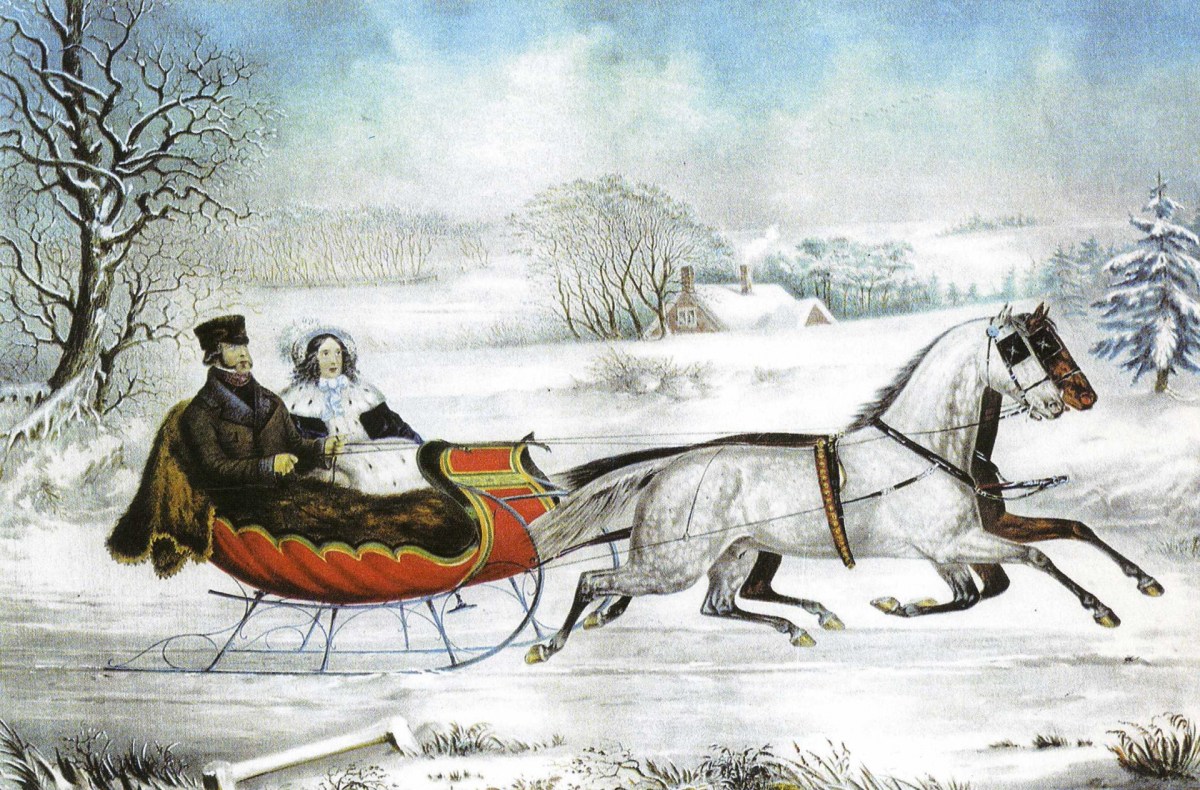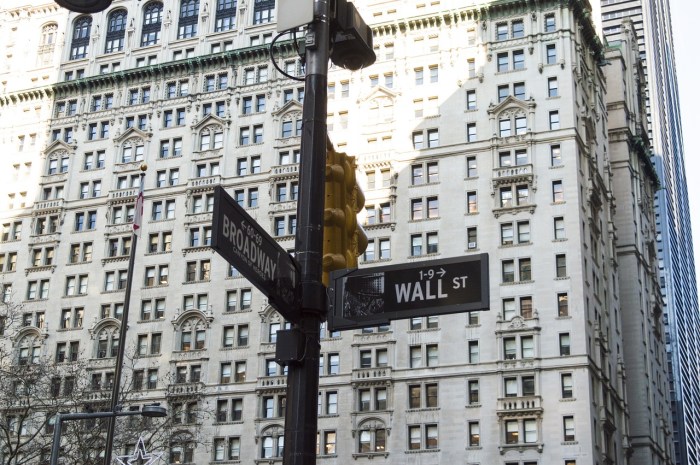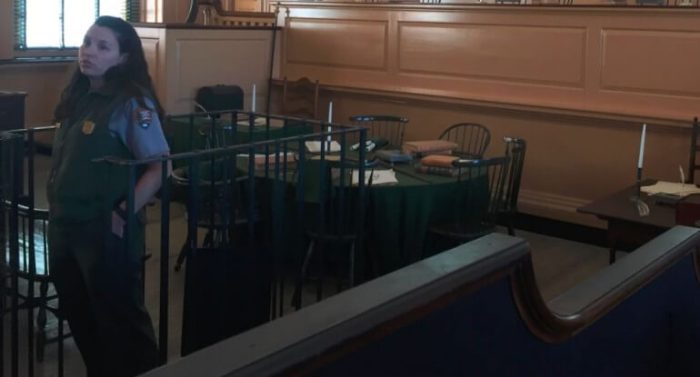“Jingle Bells” is such a prominent Christmas tune, it seems as if it has no origin, born instead solely out of holiday spirit and the nostalgia of a “one horse open sleigh.”
But the song has a storied past, one fraught with fights over which city can claim ownership — plaques in both Medford, Massachusetts, and Savannah, Georgia, memorialize the “birthplace” of the song. Recently, however, the first official documentation of the song was found, and it ties the tune to Boston. The new information may cause even more controversy.
Kyna Hamill, a theater historian at Boston University who also volunteers with the Medford Historical Society, wanted to get to the bottom of the “Jingle Bell” story.
Hamill’s findings, which broke in a BU Today article, tied the beloved holiday tune to a minstrel song performed at Boston’s Ordway Hall in 1857. Through her extended research, Hamill also ruled out that the song was penned in Medford in 1850 as the plaque in that city claims. The song’s author, James Lord Pierpont, was in California at that time, she found. “I don’t have the definite answer to where he sat down and wrote the song,” Hamill told BU Today. “But — and this is where my town is going to be mad at me — it was absolutely not written in 1850 at the Simpson Tavern in Medford.” While Savannah may seem like a strange birthplace for a song about sleighs, Pierpont spent time there when he took a job as the organist at Savannah’s Unitarian Universalist Church. Georgians say he copyrighted the song there in 1857. What Hamill did find was the first documentation of the song’s public performance via a playbill dated Sept. 15, 1987. The playbill was unearthed at the Houghton Library in the Harvard Theater Collection and features a song called “One Horse Open Sleigh” — a familiar line of the ”Jingle Bells” we know today. Ordway Hall was a minstrel theater, said Matthew Wittmann, a curator at the Harvard Theatre Collection.
Minstrel performances featured songs and dance most often performed by white actors in blackface makeup, but this doesn’t necessarily imply that the song itself has “racist” origins, he said. “A lot of American popular music and joke lore derives from the minstrel stage. It was the most popular form of entertainment in the mid-19th century, so it’s not surprising that many of the most popular songs came out of minstrelsy,” he said. “Minstrelsy is based on racist caricature, but a lot of the minstrel repertoire is nonracial in character.” An example Wittmann gave of how common minstrel songs are in our culture is that in 2006, Bruce Springsteen released released a cover of “Old Dan Tucker” — a famous minstrel song.
“It’s always steeped in this awkward racial space but essentially the songs themselves are just ballads or whatever,” he said.
The fact that “Jingle Bells” has minstrel roots made sense to Wittmann, but he did acknowledge that the perceived “innocence” and general pervasiveness of this song coming from that complicated history may be difficult for others to grasp. “Even things we take for granted as innocent as Christmas carols are implicated in a very long history of troubled race relations,” he said. “But I think in highlighting [a song’s] origins, you can have a useful discussion.”
What’s the origin of ‘Jingle Bells’?

Creative Commons


















